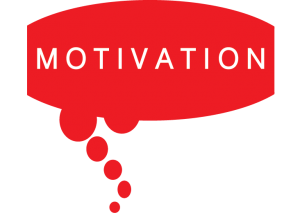Contemplating Change
A Motivational Enhancement Training Program [MET]

One of the most difficult challenges for counselors is encountering individuals who from the outset staff know are not motivated to change … not ready to work or motivated to work. The challenge for staff working with these individuals is that they are strongly ‘pre-contemplative’. Working with these individuals to move them from pre-contemplation to “preparation”, where they can effectively participate and benefit from job development and placement strategies requires that staff know how to interact with the client in such a way that they are able to drop “seeds of doubt”- create dissonance, while at the same time avoiding increasing “resistance’. They also need to work with the client to create a clear case for change. This is difficult for most staff. Typical reactions from staff is that this ‘takes too much time’ and that it is not always easy to figure out how to avoid either ‘pushing’ or falling into persuasion with such clients. Following numerous unsuccessful attempts at engaging clients to take steps towards “change” staff may need to resort to “closing the case” – terminating them in some acceptable manner or, referring the individuals “on” to the next level of intervention for additional services regardless of their lack of “readiness”. Working with “unmotivated” individuals results in a decrease in staff motivation and morale, an increase in client service costs and, a reduction in the number of successful outcomes.
Dealing with these difficult individuals … working to enhance a client’s motivation for change is often best done [easier] in a group-based setting versus one-to-one interactions. The strategy most recommended is the implementation of a brief, group-based motivational enhancement program. This type of program generally consists of four to five modules/sessions which are designed to be delivered over the course of four to five days for two-hour each day … to groups of 6 to 8 individuals.
Motivational Enhancement Therapy (MET) is a systematic intervention approach for evoking change. It is based on principles of motivational psychology, and is designed to produce rapid, internally-motivated change. This treatment strategy does not attempt to guide and train the client step by step, but instead employs motivational strategies to mobilize the customer’s own change resources.
“MET” type programs like the Contemplating Change program, can be delivered as an intervention to “nudge” or boost the client’s readiness before entering into “Plan” (preparation) and it can also be used for those who although in Plan appear “stuck” – unable to move toward work.
The MET approach is grounded in research on processes of natural recovery/change. Prochaska and DiClemente (1982, 1984, 1985, 1986) have described a transtheoretical model of how people change addictive behaviors, with or without formal treatment. In a transtheoretical perspective, individuals move through a series of stages of change as they progress in modifying problem behaviors. This concept of stages is important in understanding change. Each stage requires certain tasks to be accomplished and certain processes to be used in order to achieve change. Six separate stages have been identified in this model (Prochaska & DiClemente, 1984, 1986) … pre-contemplation, contemplation, preparation, action, maintenance, and relapse.
Individuals who are not considering change with respect to working can be described as being in PRECONTEMPLATION or CONTEMPLATION. From a stages-of-change perspective, the Contemplating Change program will take the client from where they are currently in the cycle of change [pre-contemplative or contemplative] and assists them to move towards “preparation” where they can successfully participate in the job development and placement services.
Implementation of the Contemplating Change Program
Implementation of the Contemplating Change program includes 5 days of training for staff selected to deliver the program. It is recommended that these staff already have participated in CMT (Cognitive Motivational Tools for Negotiating Behavior Change) counselor training. After the initial training and implementation 2 programs, facilitators participate in 4 additional days of follow-up training video recorded sessions of the program are reviewed to assess program delivery issues and ensure program integrity. Ongoing implementation of the program is covered under a license agreement.

